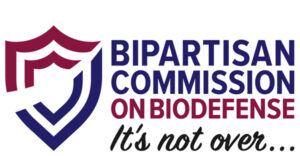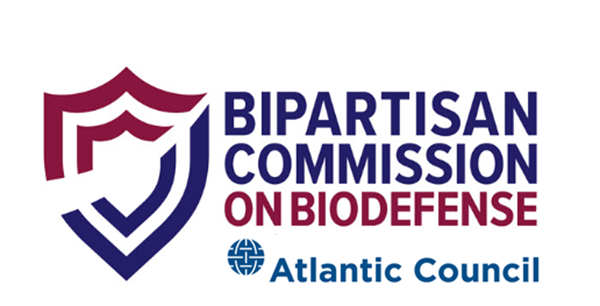Bipartisan Commission On Biodefense Salutes the Life and Contributions of Professor Yonah Alexander

FOR IMMEDIATE RELEASE
Contact: Steve Aaron
SRA Communications
(717) 554-8614
steve@SRACommunications.com

BIPARTISAN COMMISSION ON BIODEFENSE SALUTES THE
LIFE AND CONTRIBUTIONS OF PROFESSOR YONAH ALEXANDER
WASHINGTON, D.C. (April 30, 2024) – The Bipartisan Commission on Biodefense is mourning the passing of longtime ex officio member Yonah Alexander, PhD. Professor Alexander, a pioneer in the academic study of international terrorism, died peacefully on April 25.
“Professor Alexander was a fixture at Commission meetings since we began our work 10 years ago and made significant contributions to our reports and recommendations, especially as they related to the threat of bioterrorism,” said Commission Co-Chair, Governor Tom Ridge. “A true academician, Yonah provided advice on conventional and unconventional security challenges to governments here and abroad, international organizations like NATO, and private sector organizations like ours for decades. We will remember him as a kind and considerate man who cared deeply about our work. He will be missed.”
Professor Yonah Alexander was the Director of the Inter-University Center for Terrorism Studies and Senior Fellow at the Potomac Institute for Policy Studies as well as the Director of the Inter-University Center for Legal Studies at the International Law Institute in Washington, D.C. For over 40 years he also served as professor of international studies and director of institutes and programs on terrorism at State University of New York, Georgetown University, the George Washington University, and other academic institutions around the world. He worked tirelessly with NATO, the European Union, and other international organizations to address complex international security challenges and develop highly effective multilateral solutions.
“The Commission’s ex officio members contribute significantly to our work to strengthen governmental efforts to defend against biological threats. Yonah was no exception. He drew upon his lifelong experience and allowed the Commission to benefit from his expertise,” said Commission Co-Chair, Dr. Donna Shalala. “With his unique understanding and depth of knowledge on both terrorism and counterterrorism, Yonah helped to inform our work meaningfully. Keeping one foot in academia and the other in policy is not easy – I know – but Yonah did it with aplomb and for that we are most grateful.”
Professor Alexander was founder and editor-in-chief of several academic international journals and also published over 100 books and a plethora of other studies on a wide range of security topics. He authored important works on al-Qaida, cyber warfare, and the evolution of US international terrorism policy. In early 2023, he produced reports about Latin American security concerns, and threats to the African Sahel region. He founded five academic journals, including Terrorism; Minorities and Group Rights; Political Communication and Persuasion; and NATO’s Partnership for Peace Review; and Terrorism. One of Columbia University’s most prolific graduates, Dr. Alexander’s works have been translated into dozens of languages and taken up by Belgium, the Czech Republic, France, Germany, Israel, Japan, Korea, Morocco, the Netherlands, Poland, Spain, Sweden, the United States, and at least 40 other countries around the world. His personal papers and collection on terrorism are housed at the Hoover Institution Library and Archives at Stanford University.
“The future will depend on society recognizing what are the major threats impacting international stability. We must emphasize active participation across different segments of society, not only in one country, but throughout the world. You cannot have security in a particular state when there’s insecurity in other countries.” – Dr. Yonah Alexander
About the Bipartisan Commission on Biodefense
The Bipartisan Commission on Biodefense was established in 2014 to conduct a comprehensive assessment of the state of U.S. biodefense efforts, and to issue recommendations to foster change. The Commission’s 2015 report, A National Blueprint for Biodefense: Leadership and Major Reform Needed to Optimize Efforts, identified capability gaps and recommended changes to U.S. policy and law to strengthen national biodefense while optimizing resource investments. Subsequent Commission publications have addressed critical needs for an Apollo Program for Biodefense, biological risk reduction, biodetection, agrodefense, the role of the land-grant universities, budget reform, diagnostics, critical infrastructure, reducing the risk of orthopoxviruses, and State, Local, Tribal and Territorial response capabilities. In September 2018 and in October 2022, the White House released the National Biodefense Strategy, and in January 2023, OMB released a biodefense budget crosscut, top recommendations from the Blueprint. In September 2021 the White House released the American Pandemic Preparedness Plan, taking up recommendations from the Commission’s Apollo Program and Athena Agenda reports. The Commission continues to address biodefense challenges and to urge reform. Former Governor Tom Ridge and Secretary Donna Shalala co-chair the Commission. Hudson Institute is the Commission’s fiscal sponsor.
